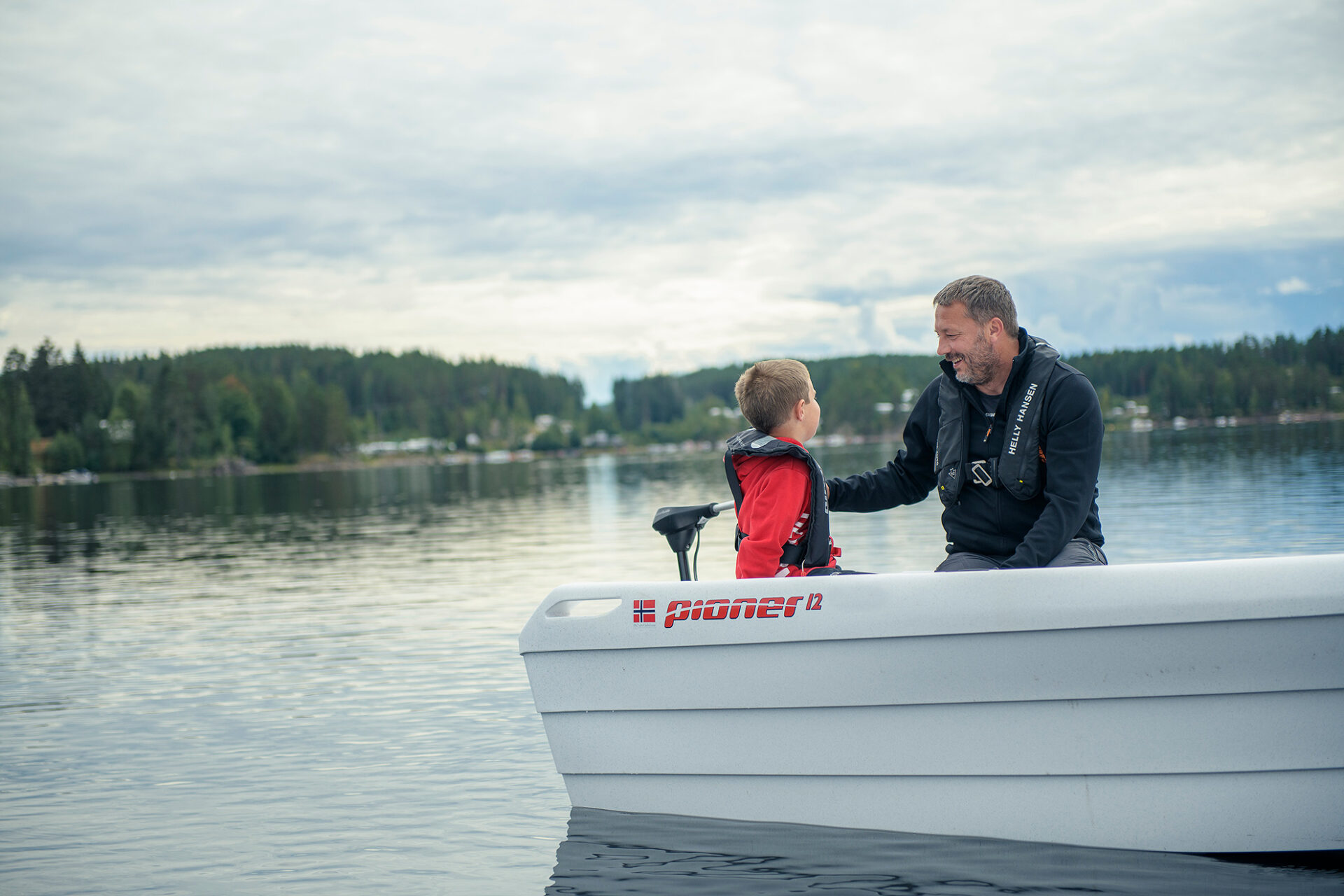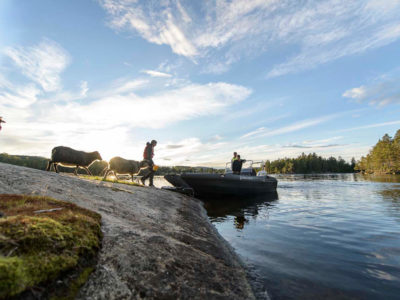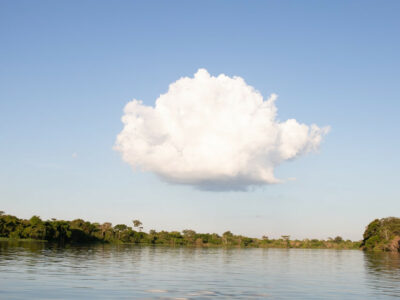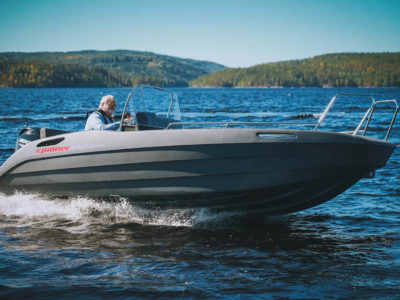Environmentally friendly boats

Do environmentally friendly boats exist?
Environmentally friendly boats and the discussion around the environmental impact of boating have become more and more relevant in recent years. The trend is to find alternative fuels and technical innovations, such as, electric motors and foiling boats that minimise friction in the water. Other important factors are the manufacturing of boats and how they can be recycled in the best way. New innovations in sustainable friendly materials and systems for recycling are important parts for creating environmentally friendly boats. The choice of material in which boats are built also affects how environmentally friendly the boat is.
Different boat hulls:
Plastic boats are light and easy to maintain. A light boat has advantages such as lower consumption of fuel during use. When manufacturing plastic boats, less energy is used than aluminium boats, but many older plastic boats are not recyclable. In recent years, the technological development of plastic materials has advanced and now plastic boats can also be recycled. A boat with an aluminium hull has the advantages of being light and durable. Some parts are also recyclable. Aluminium is a valuable material with a good recycling system. The disadvantage is that a lot of energy can be required to manufacture aluminium boats.
It is important to take into account the life cycle of boats as the environmental impact occurs throughout the life of the boat.
When buying a boat, it is important to consider the area of use you want the boat for.
Different hulls affect water efficiency and consumption. For example, planing boats are made to be able to drive fast with a lower energy consumption. But it is important that the boat is above its planing threshold. Another variant is boats with a semi-planing hull: these are more energy-efficient but go slower.
Are Pioner boats recyclable?
All new Pioner boats are today produced from materials that are recyclable. The plastic is reused to build new boats or other products. Through its unique manufacturing process, the boats are built in one piece and they require minimal maintenance and have a long lifespan.
Pioner 11 is adapted for electrical operation and it is possible to choose different capacities of the electric motor depending on the area of use. The boats are recyclable and perfect for shorter transportation or a fishing trip. Read more about Pioner 11
Pioner cares about the environment and the world around us. Pioner work with strict procedures for the entire production and has ISO-certified quality and environmental management systems. Co-operation with Nordic Plastic Recycling provides the consumer with an opportunity to easily recycle their boat.
There are several ways to reduce the environmental impact of boat ownership and some of the most common are:
- Keep the bottom of the boat clean
- Do not use toxic anti-fouling paint
- Instead of anti-fouling paints, wash the boat at wash stations or use a membrane cloth at the boat site
- Use the right fuel for your engine.
- There are now diesel and petrol alternatives that reduce emissions.
- Use propellers that are suitable for your specific boat and which are in good condition.
- Drive the boat in an environmentally smart way.
- Stay a couple of knots below the speed limit and shut off the engine rather than leaving it to idle. Try to drive at a speed just above or below the planing threshold for even consumption
- Avoid using old two-stroke engines
- These engines only combust 70-80% of the fuel and release the rest into nature
- Electric motors for shorter trips
- Development is moving fast for electric motors and, for shorter trips or fishing adventures, a silent motor is perfect





